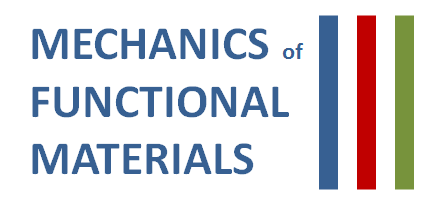Organization
| LV-Nr. | Termine | Veranstaltungsort | Studienbereich | Credits |
| 11-01-4109 | Winter term | L2|01.77 | M.Sc. Materials Science | 6CP |
Inhalte
Overview
This lecture deals with fundamentals of micromechanics in the framework of elasticity and plasticity theory. Important topics include
- Basics of elasticity, plasticity, viscoplasticity and crystal plasticity,
- Theory of configurational force (including J-Integral),
- Micro-macro transition and homogenization, and
- damage mechanics.
Literature
- D. Gross and Th. Seelig, Fracture Mechanics – With an introduction to Micromechanics, Springer, Berlin, 2nd edition, 2011
- J. Aboudi, Mechanics of Composite Mechanics – A unified Micromechanical Approach, Amsterdam, 1991
- K.C. Le, Introduction to Micromechanics, Nova Science Publ. Inc., 2010
- T. Mura, Micromechanics of Defects in Solids, Martinus Nijhoff Publisher, Dordrecht, 1987
- T.I. Zohdi and P. Wriggers, Introduction to Computational Mechanics, Springer, Berlin, 2008
Teacher: Prof. Dr. Bai-Xiang Xu



